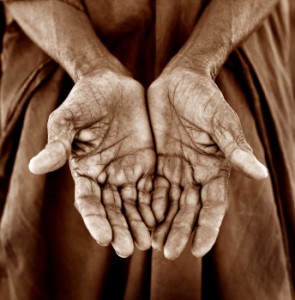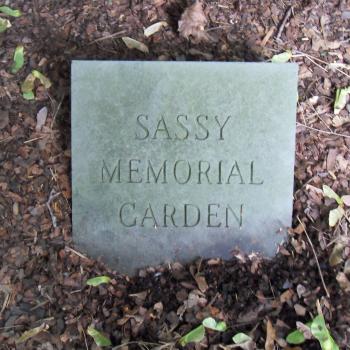 “So what are you doing for Lent this year, Bill?”
“So what are you doing for Lent this year, Bill?”
This was my annual question to my spiritual director, Fr. Bill Shannon, for the twenty-five years that I went to him for monthly counsel. (I wrote about our relationship in a previous post.)
When I posed the question in 1995, about ten years into our relationship, Bill’s eyes twinkled in a smile as he answered. “Each day I’m going to write a letter to someone, and then keep that person in my prayers during that day. It’s a way of participating in the Communion of Saints.”
That impish eye-twinkling came from Bill’s knowing that his answer would take me by surprise. A fairly new Catholic, I’d expected that he would be “giving up” something for Lent.
He explained. “You shouldn’t be focusing on the negative for Lent. It’s a positive opportunity—to attend in a special way to one’s relation to God.”
The following year, at our meeting just before Ash Wednesday, I posed the annual question. Bill’s answer was the same as the previous year’s, but with an addition: “And I’m going to clean up this office!” Yes indeed, his office was always a mess of papers, mail, piles of magazines and books. I affirmed teasingly that cleaning it would be a good Lenten discipline for him.
Then I told him my own little plans. “I’m hoping this Lent to be more consciously grateful: to thank people, to cultivate affirmative responses to people—especially to my husband! And at dinner each night, George and I are going to start off talking about where in particular—in one certain place or moment or experience of the day—each of us did see God and give thanks.”
Bill nodded his sweet smiling assent—his blessing (as I always saw it).
But then he added, “Where’s the traditional trilogy in your Lent? Prayer, fasting, and almsgiving.”
So I said: “For prayer, I’m going to read a bit each day of Joan Chittester’s Rule of Benedict and then use it for a half hour of meditation. For fasting: Hmm, you know I can’t do food-fasting. But I hope to fast from what keeps me from God—for instance, moping.” (My natural disposition is akin to Eeyore’s.)
Again, Bill nodded his assent. Then we talked a long time about the challenge of almsgiving. He habitually contributed lots of money to worthy organizations like Catholic Relief Services. But he confided feeling bad that he hadn’t in his life done direct hands-on serving of the poor. And at that point of his life, with the physical limitations of arthritis and other ailments of aging, he couldn’t.
I protested: “Bill, you give so much of your special gifts to others—you’re just so humble that you don’t realize how much you give.” But he persisted: “That’s not the same.”
As for my own version of almsgiving: I said, “I don’t have much money, but I have time, and I try to give that to others directly. Like phoning a chronically ill neighbor a couple times a week to ask what she needs.” Bill nodded sweetly again.
A few years later, my monthly meeting with Bill happened to be around the middle of Lent. I asked him: “Do you feel you’ve gotten anywhere by this point in Lent?” I knew it was a silly question, but needed to hear his response.
“I’m not sure that’s the question to ask,” he smiled gently. “I don’t think any more of ‘getting somewhere’ or even of taking a path; I don’t care if I’m on the right path or not. I just try to be attentive to God in the moment.”
Another year, just ten years ago, our meeting fell on the day after Ash Wednesday. I was still struggling with my natural Eeyore-like disposition. “I’m doing ‘joy’ this year for Lent, Bill. What do you think?”
He nodded his approval. Then he added: “Remember how we all sin, yet we all are graced.” And he quoted Romans 5:20: But where sin was multiplied, grace immediately exceeded it.
When I got home that day, I wrote out this passage and put it on our kitchen table. It would be our reading before dinner each evening during Lent.
This year, Lent finds George and me focusing on his recovery from open-heart surgery.
Bill died last spring, but if he were here for me to ask his counsel about what to do for Lent, I’m pretty sure he’d say firmly: “Don’t add anything. George’s recovery-process is your Lent.”










